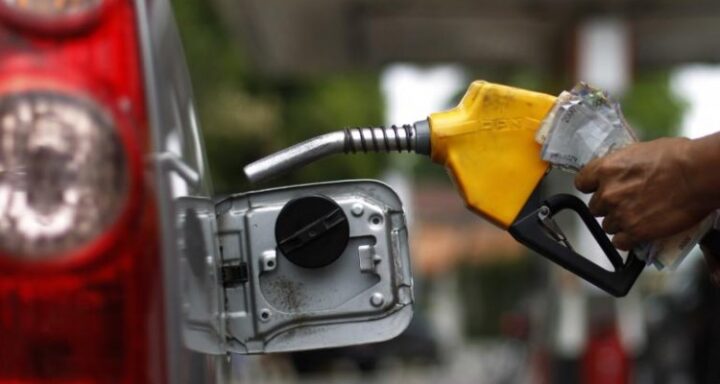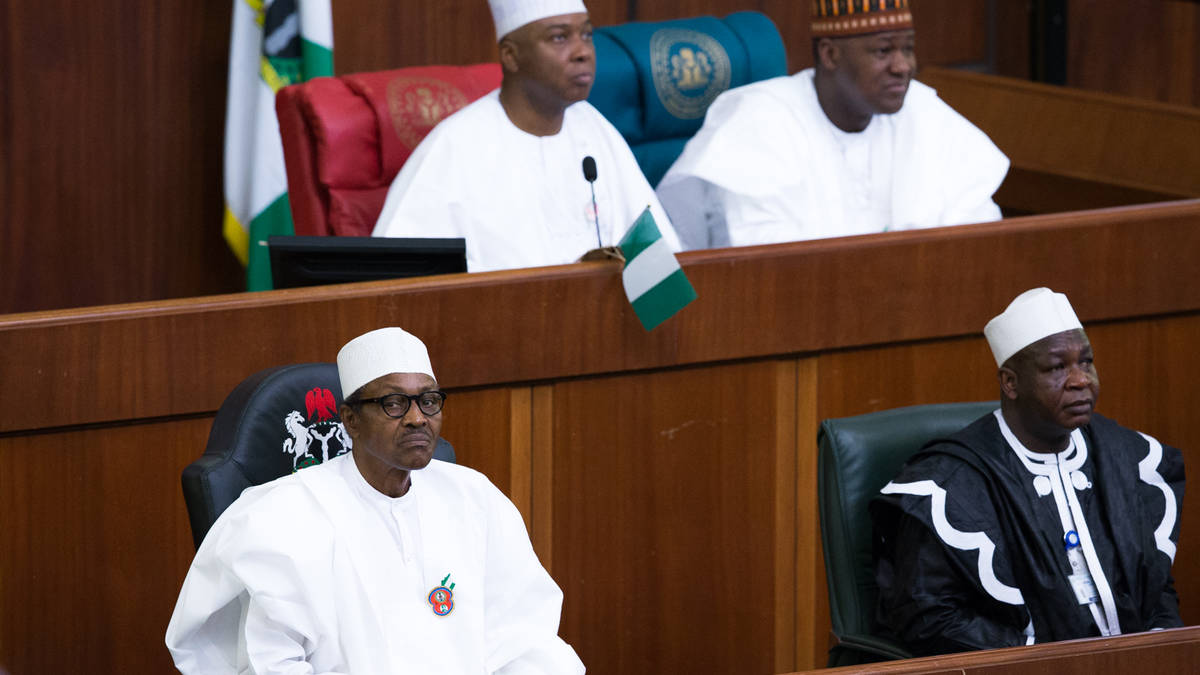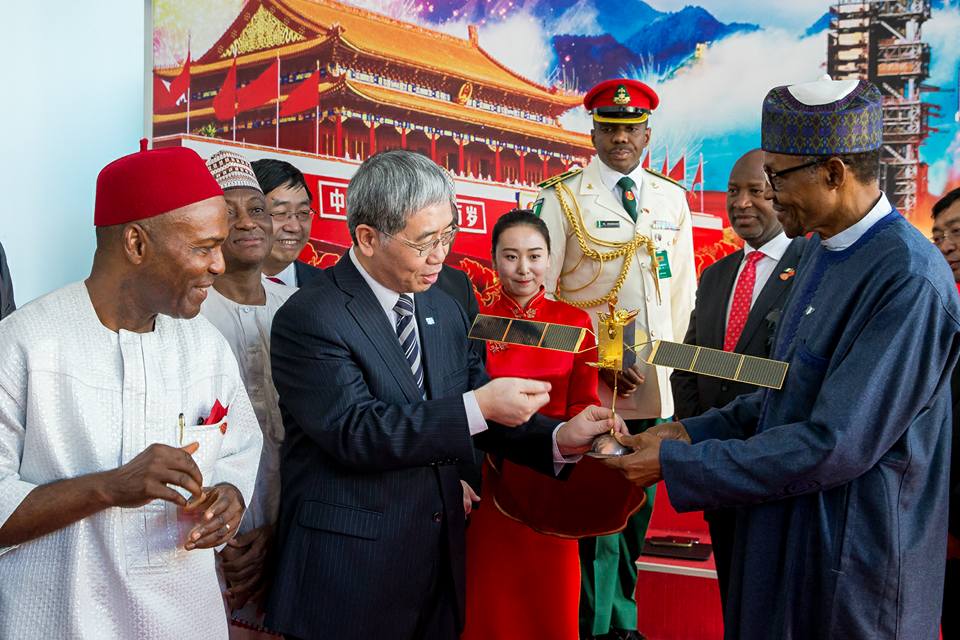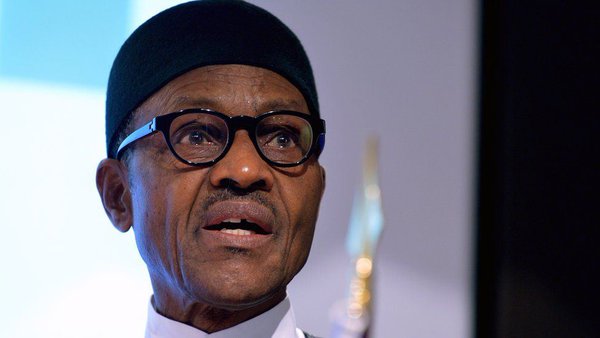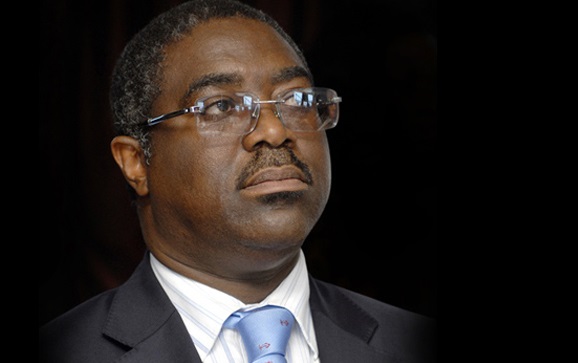By Ridwan Bello
In December 2015, after many years of providing fuel subsidy – also known as the Petroleum Support Fund (PSF) – the Nigerian government announced a withdrawal of the fund. The reason given was that the government could no longer afford the payment due to a dip in the country’s revenue, caused by the huge drop in crude oil prices at the international market. At the time, the subsidy withdrawal led to no increase in the pump or retail price of petrol at local stations, only because oil prices in the international market had fallen so low that the full economic cost of supplying a litre of petrol was lower than local retail price.
However, in more recent times, oil prices at the international market are beginning to rise once again, putting familiar upward pressures on unregulated local retail price of petrol. In April 2016, with the intention of soaking up these inflationary pressures and keeping pump price of petrol at its current level of 86.50 Naira per litre (save for those despicable and unscrupulous marketers selling theirs at unimaginably higher rates), the government announced the return of the subsidy. This indecision surrounding the subsidy issue has been a recurring theme for a long time. This piece therefore examines the subsidy issue through the lens of environmental economics, and proposes a number of options to address the issue once and for all.
To establish a context, I suppose it is vital to analyse the economic and environmental importance of the fuel subsidy. The subsidy affects the local pump price of petrol directly and – based on the law of demand – the quantities of petrol consumed by Nigerians indirectly. As shall be discussed shortly, these two variables are respectively important from economic and environmental perspectives. However, to fully understand this importance, a brief explanation of how the fuel subsidy works is necessary.
Although Nigeria is a crude oil-producing State, she does not – mainly due to mismanagement of her refineries – refine the crude oil she produces into the component fuels, one of which is the petrol she consumes. Instead, the country exports the crude oil produced, and imports the refined products for most of her domestic consumption. Thus, domestic pump prices of petrol, if unregulated by the government, will ordinarily fluctuate with crude oil prices at the international market. To insulate Nigerians from this fluctuation, the government fixes a local pump or retail price which is usually different from the full economic cost of supply. The government then either pays off the deficit or earns the excess, depending respectively on whether the fixed retail price is lower or higher than the full economic cost of supply at a particular point in time. More often than not, the former is the case and the amount the government pays in deficit is what is called the fuel subsidy.
Advertisement
Now, why is this fuel subsidy important from an economic perspective? First, it ties down a large amount of government spending and places a fiscal burden on the economy, particularly when there is a huge difference between oil prices at the international market and subsidized domestic retail price of petrol. According to Bloomberg, the country spends on average a whopping $7billion on fuel subsidy annually. Often time, these fiscal burdens are financed by some combination of higher public debt, higher tax burdens, and crowding out of potentially productive public spending (for example, on health, education, and infrastructure), all of which can be a drag on economic growth.
Secondly, the PSF imposes large economic costs resulting from certain “negative externalities”. For instance, as a result of the PSF, a unit of petrol in Nigeria is cheaper than in some neighboring countries especially Togo and Benin Republic. This creates an arbitrage in which money-sniffing capitalists take advantage on this price differential and smuggle the product to neighboring countries for sale, solely to make more profit. Thus, the Nigerian government does not just subsidize its citizens, it also somewhat subsidizes those of these neighboring countries. Another aspect of the aforementioned negative externality resulting from the PSF is corruption. Due to inexplicable inaccuracies in the record of the volumes of refined oil imported into the country, funds used to pay the subsidy are sometimes mismanaged or unaccounted for. I don’t know about you, but I am yet to forget about the “missing” $20 billion saga between the Nigerian National Petroleum Corporation and the Central Bank of Nigeria. Till date, the accusation remains controversial and unsolved.
From environmental perspectives, the petroleum support fund is also important. The subsidy indirectly influences the quantities of petrol consumed locally and it tends to lead to higher petrol consumption. Considering that petrol is one of the fossil fuels which are generally notorious for their co2 emissions and attendant health consequences, it is fair to say that the PSF contributes to environment damage, causes more premature deaths through local air pollution, exacerbates congestion and other adverse side effects of vehicle use, and increases atmospheric greenhouse gas concentrations.
Advertisement
Now, why is it necessary to action on this issue? Like other energy subsidies, the petrol subsidy is provided mainly to serve the social goal of reducing fuel cost and increasing access among poor and currently unserved households. However, energy subsidies in general have proven to be an ineffective and inefficient way to achieve this desirable social goal. As has been previously argued, the PSF especially leaves Nigeria’s economy porous to corruption and other costly leakages. Considering that crude oil prices have fallen sharply, starting in June 2014, and are expected to stay low for a considerable period of time, and that the country’s crude oil-dependent revenue is suffering from a cash crunch as a result, the need to address this issue is evident as it is pressing.
From an environmental perspective, taking action on the fuel subsidy issue will address the aforementioned environmental and health implications, particularly with regards to co2 emissions, local air pollution and attendant health consequences. This does not only save lives and improve the quality of health of the general public, it also fits perfectly into the global actions toward reducing GHG emissions and mitigating global warming and climate change. Moreover, in light of the global focus to decarbonify energy systems around the world by achieving transition to renewables and other environment-friendly energy sources, a subsidy – which encourages overproduction and overconsumption of the “environment-unfriendly” petrol – sends potential investors the wrong signal.
So how should the fuel subsidy issue be tackled? The fundamental problem created by the subsidy is that the local retail price of petrol does not reflect its true costs, including the externalities its consumption creates such as air pollution damage to the health of others through climate change, heart disease, asthma, and so on. To correct this market failure, I propose a two-stage subsidy reform that is aimed at adjusting the price of petrol to reflect the cost of these damage, hence internalizing the externalities. The first stage will address the economic aspect of the problem and the second stage will tackle the environmental aspect.
The first stage proposes the complete but gradual withdrawal of the PSF. The idea is to ensure that a local consumer who chooses to purchase a litre of the commodity pays its full economic cost. By so doing, it is assumed that the consumer will buy just the right quantity that maximizes his or her utility given efficient market prices, and the government is spared the huge fiscal burden and leakages that the PSF creates.
Advertisement
While the idea of complete elimination of the fuel subsidy may seem simple on paper, implementing it in reality will be far less straight forward. The nationwide strike and protests in January 2012 that followed the subsidy reform similar to that I currently propose are fresh memories. However, certain key “ingredients” must be put in place for such subsidy withdrawal to be successful. First, clear, open and honest information on the scale of subsidies, their costs and impacts, who pays and who benefits, plans for reform, and complementary measures that will be taken must be provided. This subsidy issue is not one with which you play “hide and seek”! Second, it is absolutely necessary to create new institutions or strengthen existing ones to support the reform. This, the Jonathan administration tried to do by setting up the SURE-P program. I’m not quite sure what’s left of that now. No surprises though, SURE-P was poorly planned, and possibly dead on arrival. Also, the NNPC, as egregiously corrupt as we have come to know it to be, cannot be trusted with the kind of reform that we need.
It should be said though that the Change aura of the Buhari regime is spreading to that institution now. Or so it seems. Third, the fiscal space created by the subsidy withdrawal must be used to provide for wider public goods. Particularly, resources saved have to be reallocated to those groups most affected by reform by adopting complementary measures. In a country like Nigeria where it has been reported that 27% of average household budget is dedicated to fuel-related expenses – with large proportions of the population relying on petrol-powered generators for electricity and commuting in petrol-powered private cars or motorcycles, due respectively to erratic electricity supply from the national grid and undeveloped public transport facilities – reallocation of savings made from subsidy withdrawal to fixing the country’s ailing power and transport sectors is particularly of paramount importance to the successful elimination of the PSF. Lastly, setting credible and predetermined timeframes for phasing out fuel subsidies. You know what they say about proper planning preventing poor performance.
The second stage of the reform is the imposition of an additional tariff or tax per unit of petrol bought that would internalize the external cost of petrol consumption – from air pollution, traffic congestion and related health conditions. In environmental economics parlance, such a tax is called Pigouvian Tax, and it is conceptually similar to the carbon tax that has been proposed as an economic instrument for addressing co2 emissions reduction in some European countries.
Two major issues regarding this additional tax on petrol will be how to decide 1) the efficient level of the additional tax to be imposed and 2) who should pay the tax and who (if any) should not. The first issue requires tedious calculations in economics, which I am sure you would not care to look through – except of course, you are aspiring to be 21st Century Newton or Einstein! As for the second issue, ideally, petrol consumers who generate external costs should be charged the additional tax. In this context, that would include households using small petrol-powered generators, motorists driving fuel-guzzling ICE-powered vehicles, as well as firms running on petrol-powered electricity generating plants. However, for two key reasons, I opine that the additional tax should initially be charged on firms running on petrol-powered generating plants and then gradually extended to households and motorists.
Advertisement
First, many motorists already internalize some of their external costs in their driving, for example, by sharing in the inconvenience created by increased congestion on roads, delayed travel times and the risk of injuring themselves in vehicle collisions; and households also already account for some of these external costs, for instance by sharing in the discomfort and other health consequences of noise and air pollution contributed by both their generators and their neighbours’. The same cannot be said of many firms. Second, given that the first stage of this reform will already lead to an increase in petrol prices and given that households and motorists are likely to be the most affected by this, the idea of an additional tax that will further increase petrol prices will be tough to sell to the people. Firms on the other hand have the financial wherewithal and can relatively easily respond to these price disincentives through innovation and investment in renewable energy technologies, particularly solar which has tremendous potentials to be a practical energy source in Nigeria. To catalyse this process, it is strongly recommended that the revenue obtained from the additional tax be reallocated to subsidize renewable technologies, to the extent that it enhances their market penetration and uptake.
At this point, I suppose the question we ask ourselves here is: do we have to go this far? Are there no alternatives to address this issue? As far as the economic aspect of the PSF issue is concerned, the ideal solution is to fix the countries moribund refineries. This will ensure that Nigeria no longer incurs huge expenses importing the petrol it requires for daily consumption. More importantly, it will eliminate the need to subsidize the commodity to stabilize local prices against fluctuations of oil prices at international markets. However, fixing the country’s refineries will likely take a few years, at the earliest. Pending that time, complete elimination of the subsidy is possibly the only way to save the country from huge fiscal responsibilities and leakages associated with the PSF.
Advertisement
With respect to the environmental aspect of the PSF issue, a couple of alternatives (market-based and regulations) may be employed to address the problem. Any regulation or market-based incentive that increases the cost (actual costs and opportunity costs) of petrol consumption for firms should achieve results similar to the additional tax proposed above. Examples of such alternatives include feed-in tariffs for electricity generated from renewables, as seen in India; preferential financing in which higher costs are charged on loans for firms generating energy using petrol and lower costs of loans for firms using renewables, for example in Brazil; a variant of this is China’s “green credit” which requires banks to cease lending to companies who are listed in some kind of blacklist for environmental violations and to increase lending to projects that are in compliance with these environmental regulations; and credit guarantees for firms adopting “green” energy technologies thus reducing the risk and cost of investing in those green technologies, as seen in Korea. The rationale behind these alternatives is to change relative prices – by raising the cost of “damage-causing” petrol and/or lowering the cost of less damaging alternatives (renewables) – in order to provide producers and consumers with financial incentives to adopt the latter.
The advantage that the additional tax has over the above-mentioned alternatives is that the latter often requires the provision of some form of financial investment by the government or some financial institutions, while the former does not. Thus, an additional tariff on petrol consumption will be more practical for a Nigerian government that is so broke it’s going cap in hand to the Chinese to beg for loans. However, for the most effective result to be achieved in reducing petrol consumption and increasing green energy technologies uptake, it is advisable to employ the additional tariff option in combination with one or more of these alternatives in a “carrot and stick” approach whenever possible.
Advertisement
So who gains and who losses from this subsidy reform? As with any other policy, the two-stage subsidy reform comes with benefits and costs, as well as gainers and losers. In terms of benefits, the country will be spared huge drain on her finances that the subsidy causes as I earlier explained. It is also expected that in the long run, as consumers reduce petrol consumption in response to higher prices, reductions in health implications from associated pollution will benefit the society. Moreover, reduction in vehicular travel and congestion – with people taking more public transport – will reduce travel times, the risk of vehicular collisions and road accidents to pedestrians, all of which are non-monetary benefits to the public. Contribution to co2 emissions reduction and climate change mitigation is yet another benefit.
In terms of cost, as the reform will lead to increase in the price of petrol – a commodity upon which many daily energy-consuming activities in Nigeria depend – the initial welfare loss to the people will be tremendous. For this reason, this subsidy reform should protect the poor and vulnerable, making sure their well-being is not adversely affected. The proper use of the fiscal gain would be crucial in addressing this issue as well as the overall distributional impact of reform benefits. Moreover, higher petrol prices will harm energy-intensive firms, especially considering that they will be the ones to feel the full two-stage subsidy reform I propose. Thus, it will be unfair and even detrimental to economic growth to raise petrol prices to efficient levels in one fell swoop. It may be prudent for the country to take advantage of periods when oil prices in the international market are low, and gradually move toward efficient petrol prices. Besides, as was earlier mentioned, clear, open and honest information about the need for reform, and the palliatives that will be put in place should be announced well in advance of the time the reform will take effect to allow all potential losers to adjust accordingly.
Advertisement
To conclude, fuel subsidy has caused us more problems than it has solved, from both economic and environmental perspectives. Think of it like a piece of shrapnel that has cut deep into our flesh; the question is not whether or not to remove it, rather it is how to achieve the least painful removal. We may not be aware of it now, because oil prices in the international market are relatively low and maintaining the subsidy payment is still quite cheap, and because of the farcical scarcity precipitated by some nefarious marketers. But when the storm settles and international crude oil prices rise to the heavens once again, how long before we start feeling that familiar strain of a huge fiscal burden imposed by the subsidy payment? How long before the corrupt vultures in the oil industry start pecking on our common treasury using the fuel subsidy as their beaks. If ever an opportunity exists to solve this problem before it (re)starts, this is it!
Bello is studying a master’s degree in sustainable development at the University of St Andrews, UK.
Views expressed by contributors are strictly personal and not of TheCable.
Add a comment
